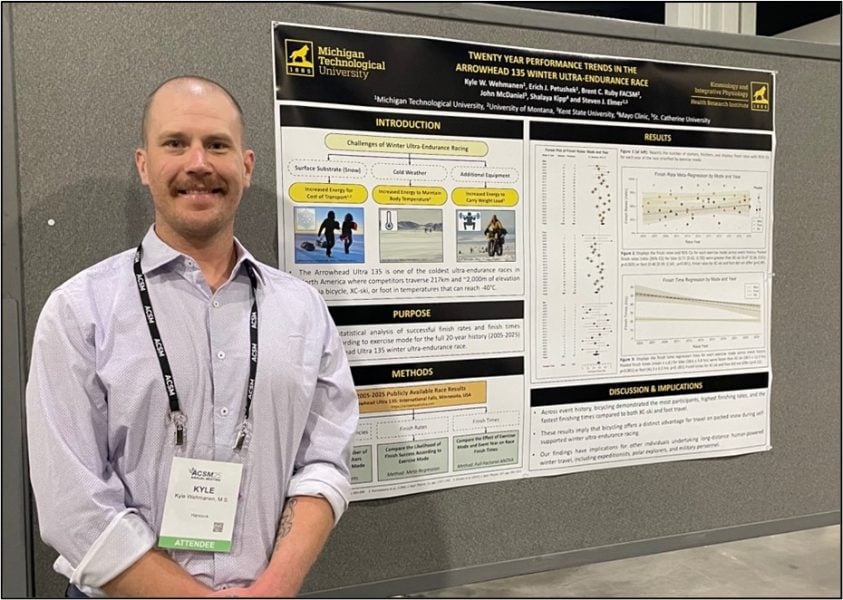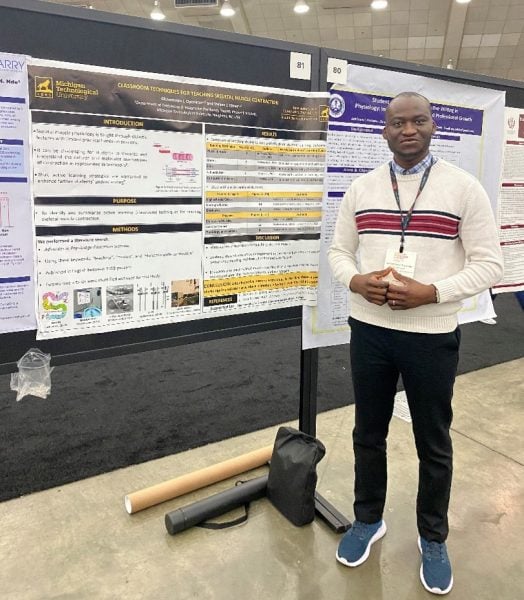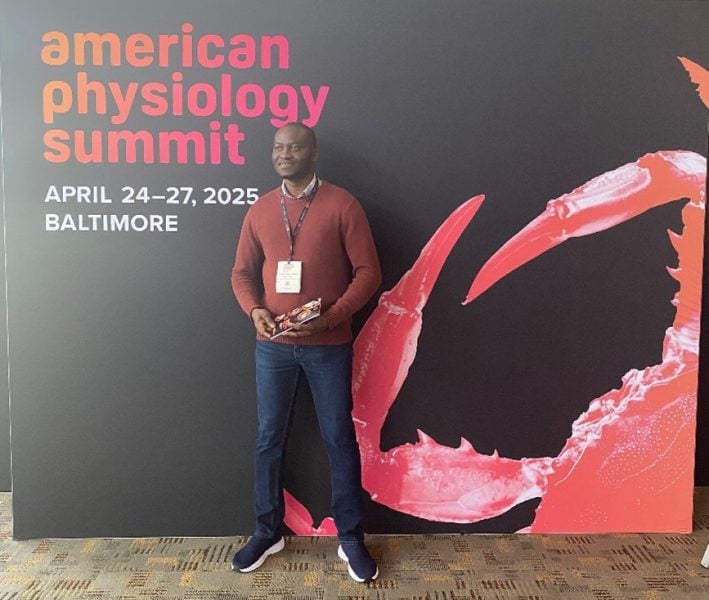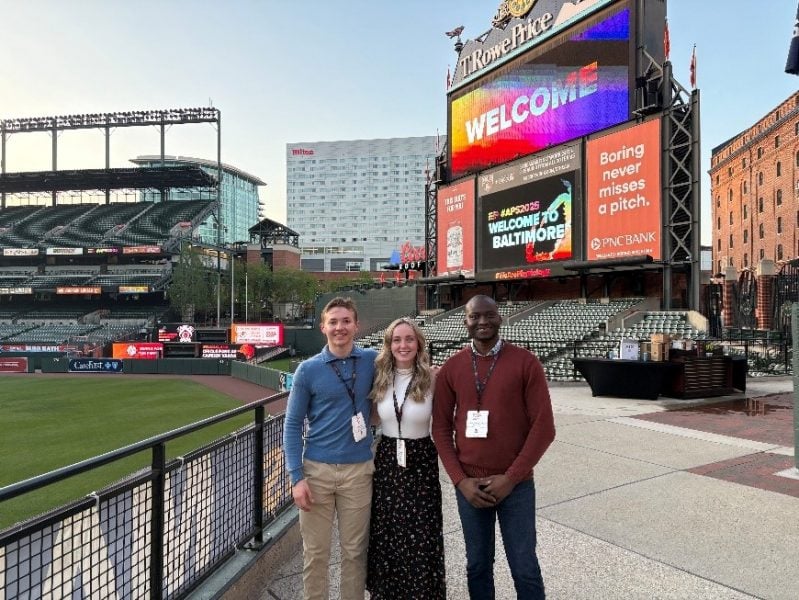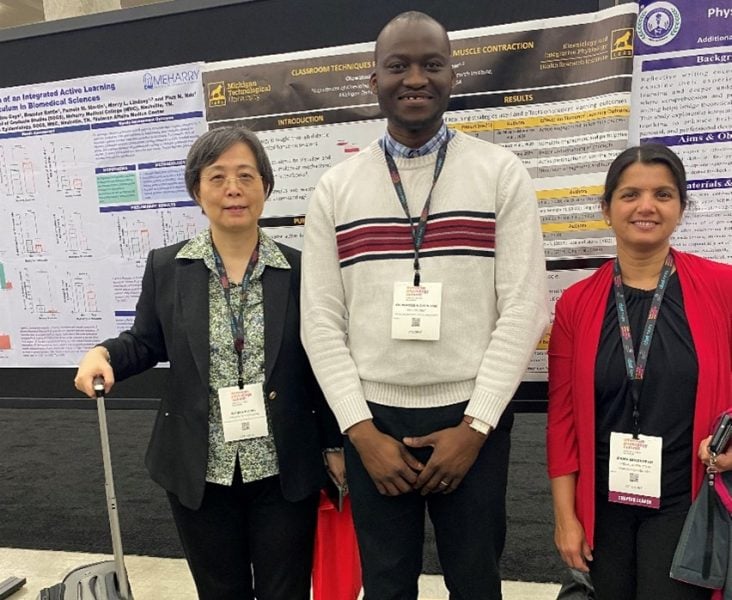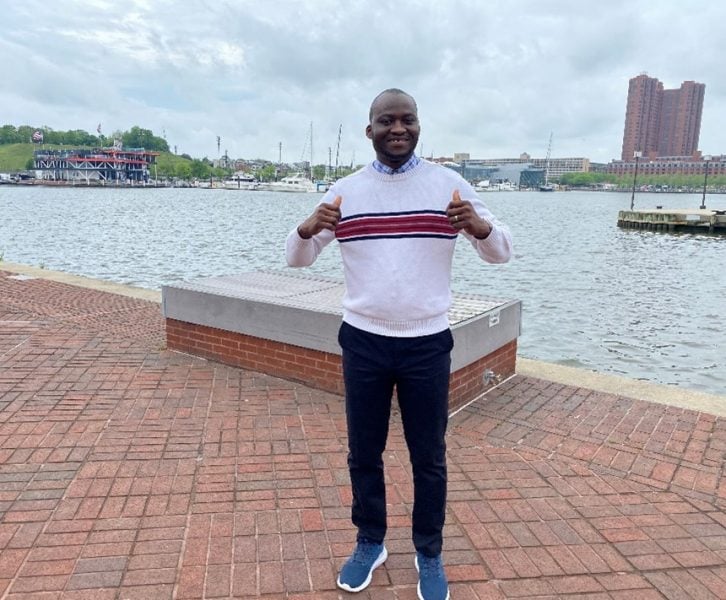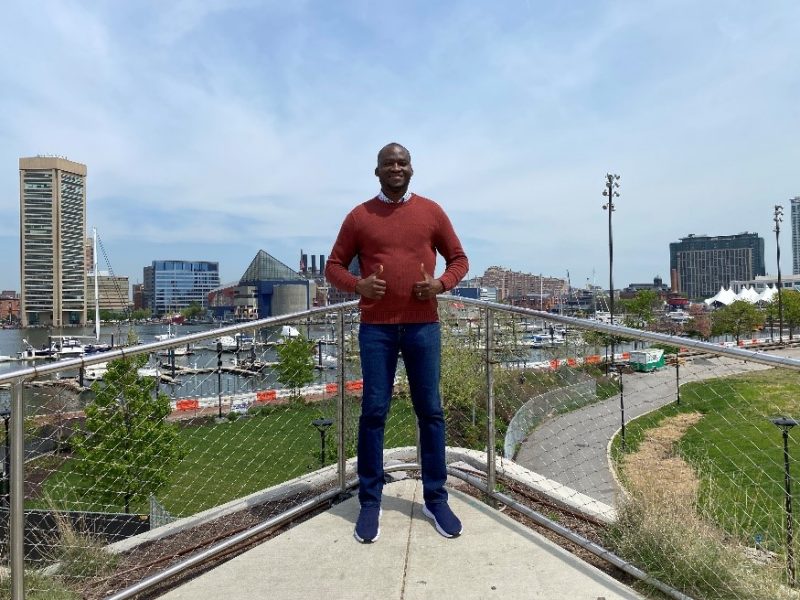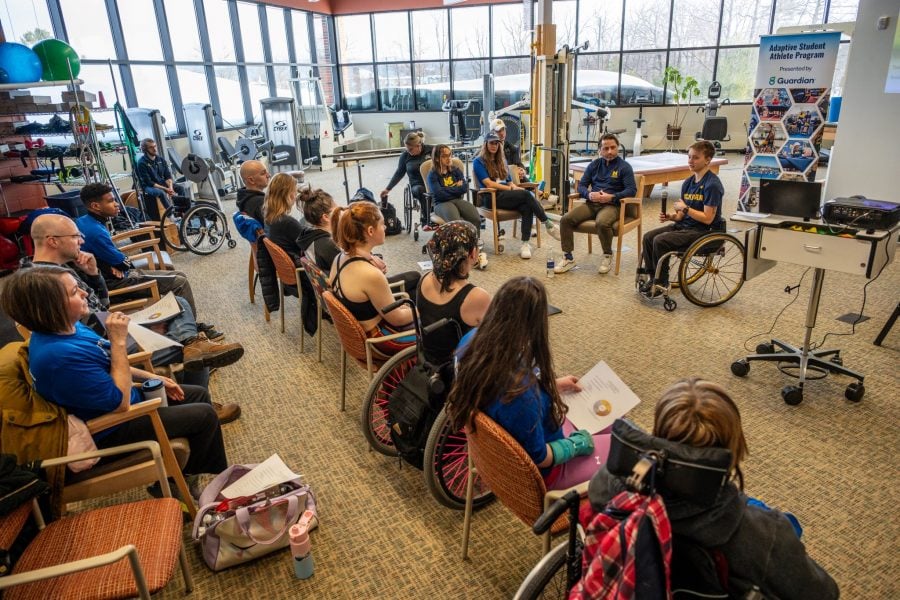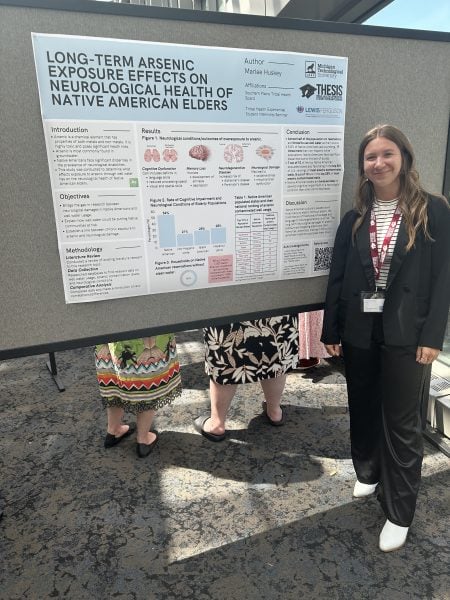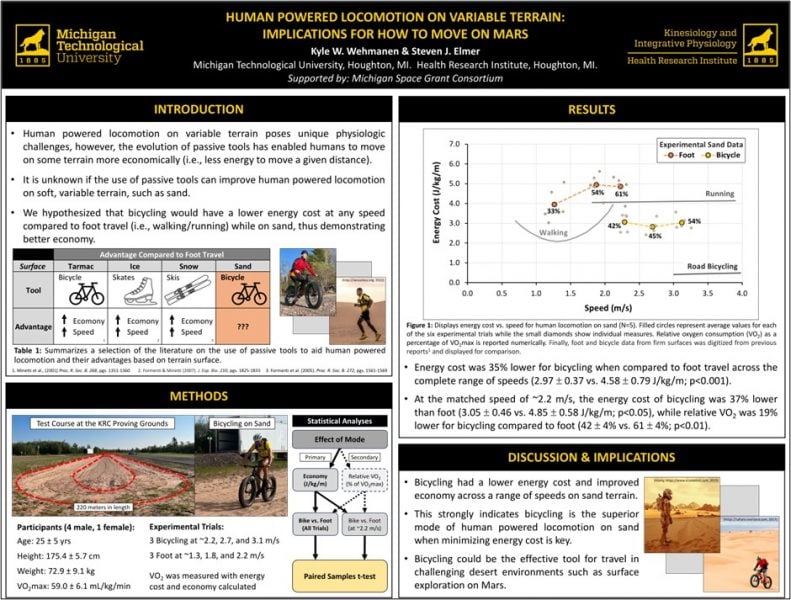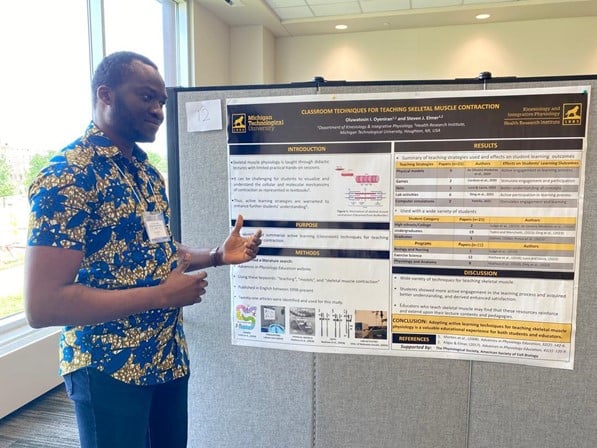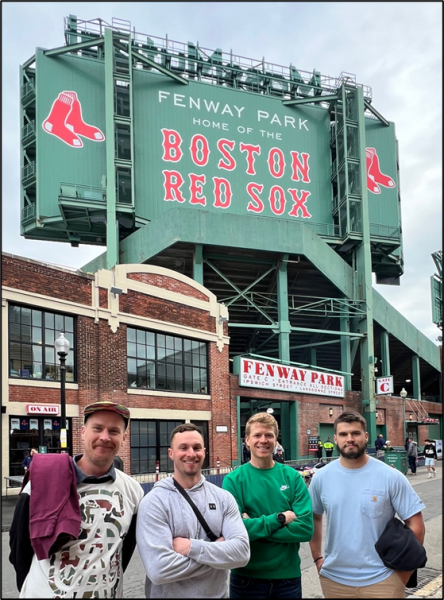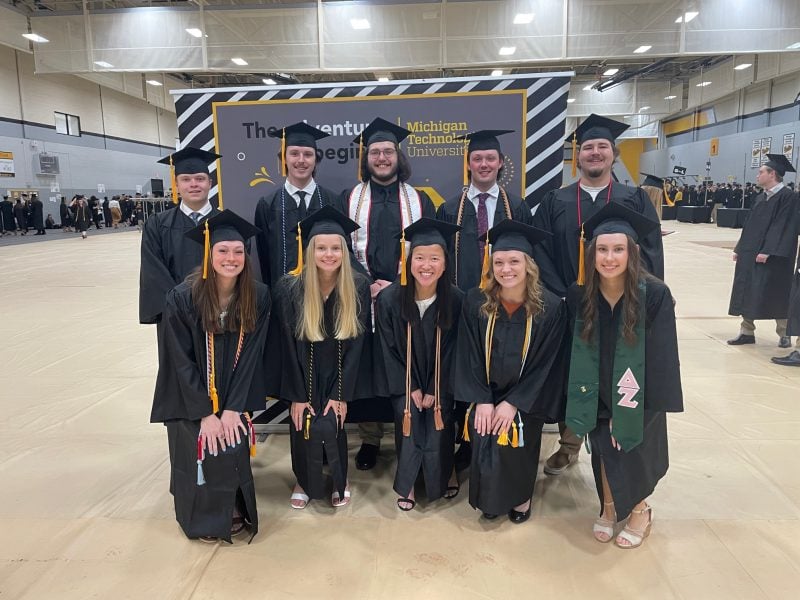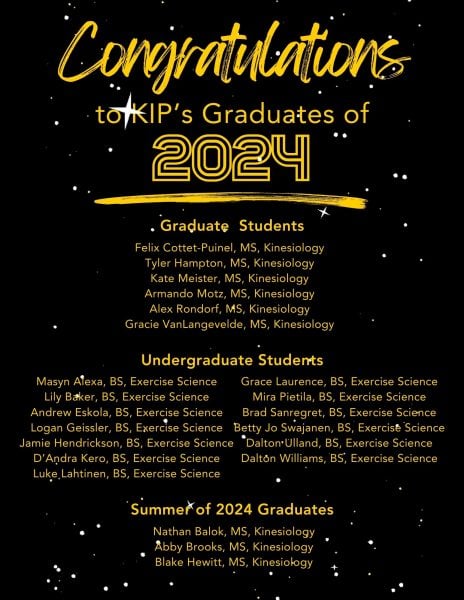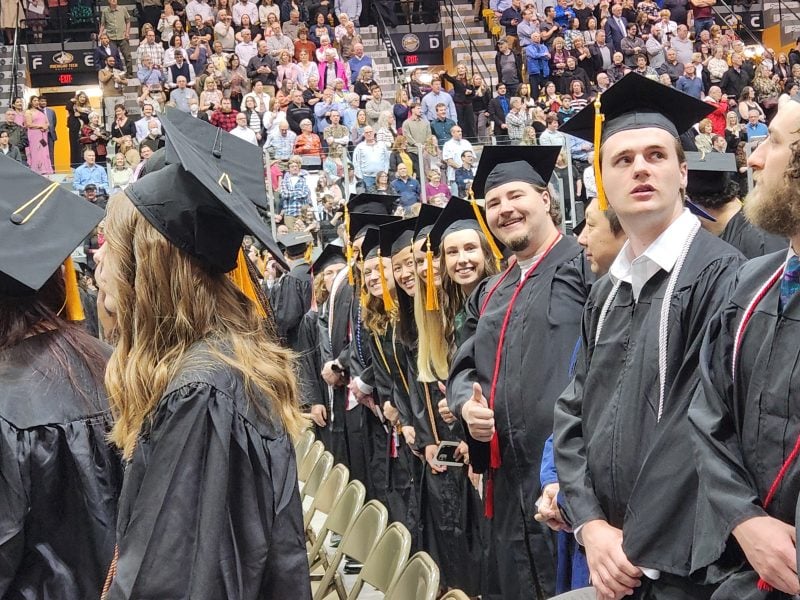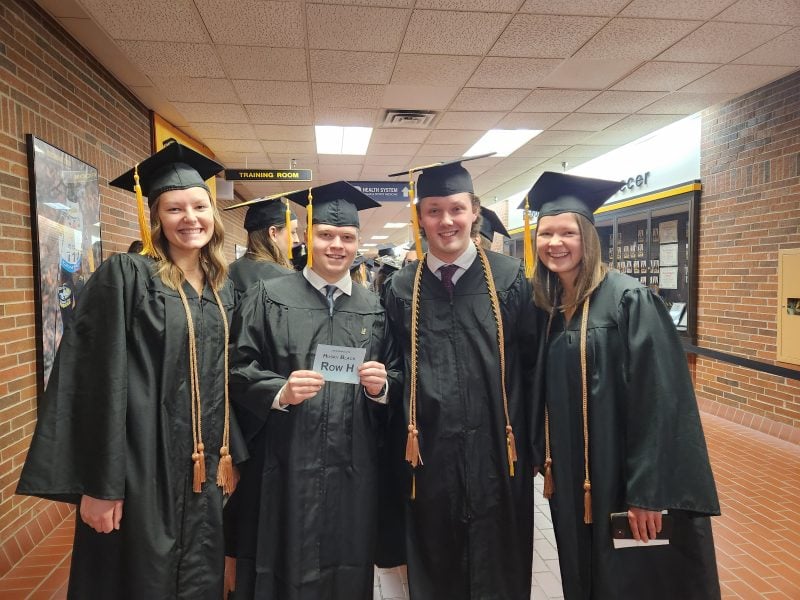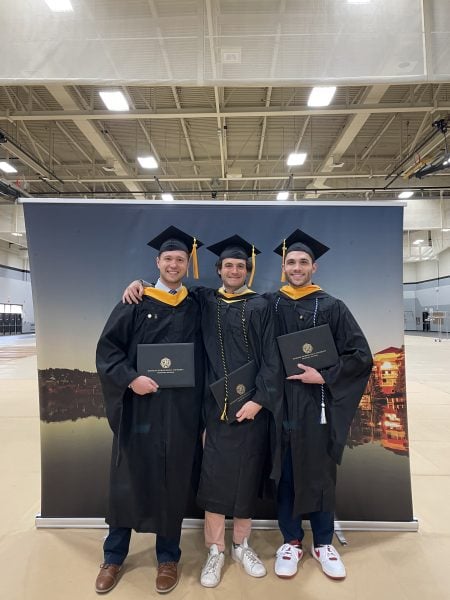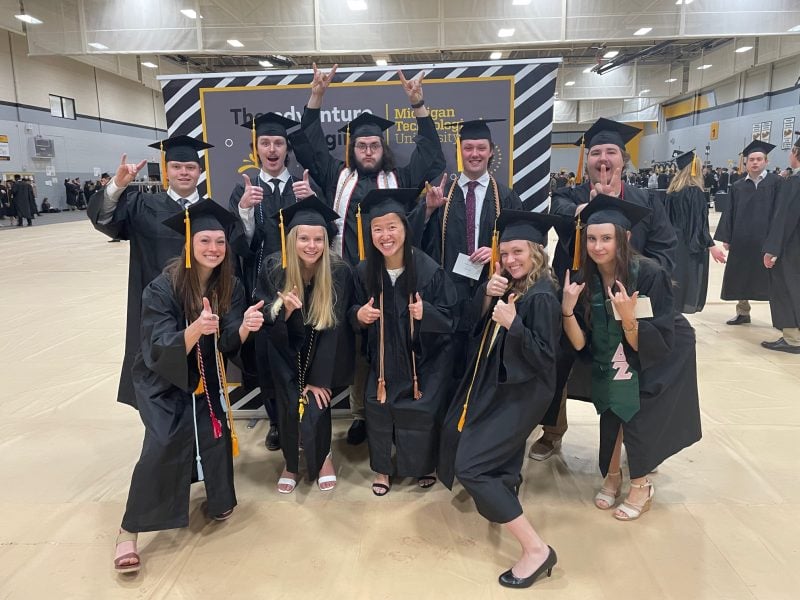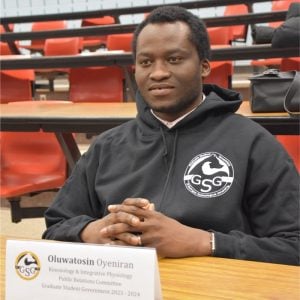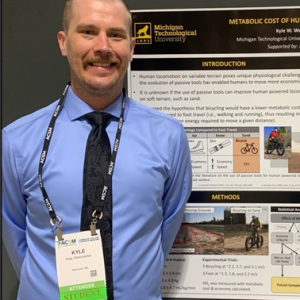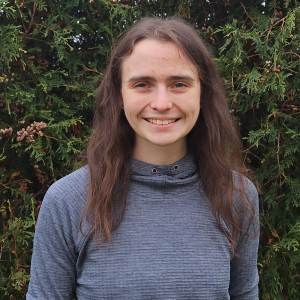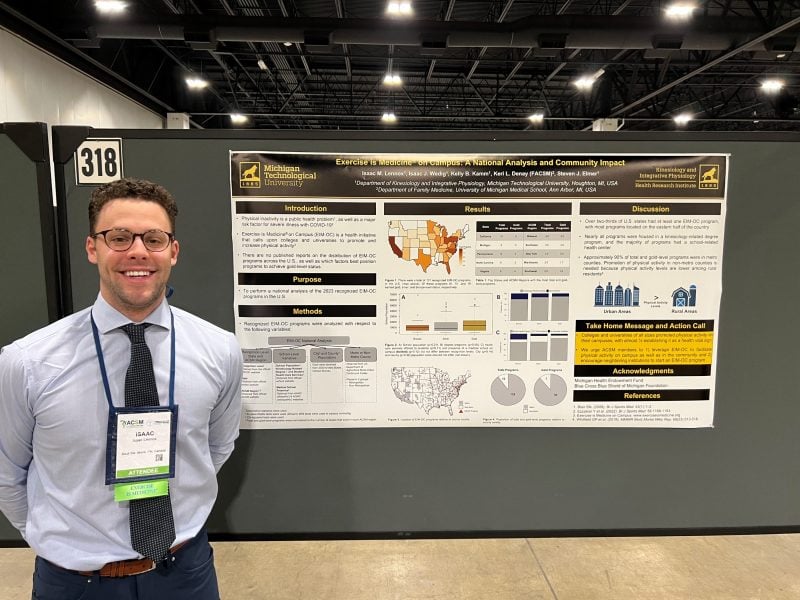Third year KIP doctoral student, Kyle Wehmanen, recently returned from attending the 72nd Meeting of the American College of Sports Medicine (ACSM). This year’s conference was held in Atlanta Georgia, home of the Centers for Disease Control (CDC), a keystone of the Civil Rights Movement, and birthplace of Martin Luther King Jr.
A big highlight of the trip was when Kyle presented his research, titled “Twenty Year Performance Trends in the Arrowhead 135 Winter Ultra-Endurance Race.” This data explores a portion of Kyle’s dissertation work which seeks to determine if a particular mode of travel (e.g., bicycles, XC-skis) offers a performance advantage when humans travel long distances on packed snow. Describing his presentation experience, Kyle said, “Sharing portions of my dissertation research, for which I’ve worked so hard, with a new, interested, and inquisitive audience was fun and invigorating. I met some wonderful people and possibly made contacts that will lead to future collaborations.”
The conference was also a fantastic opportunity for Kyle to catch up with several of his committee members in person and listen to them present on their cutting edge work. This included listening to Dr. Shalaya Kipp speak on her respiratory research which she conducts at the Mayo Clinic in Rochester, Minnesota.
In the time away from the conference, Kyle took opportunity to explore Atlanta and was even able to attend a Braves’ baseball game at Truist Park in the vibrant Battery Atlanta complex. Although the Braves lost, it was amazing to visit one of the newest ballparks in America.
In the end, spending four days in Atlanta at the ACSM annual meeting was a great opportunity for this KIP graduate student to share their research and learn from the best in the field. The speakers, panel discussions, and poster presented by others at the conference covered a wide range of topics and offered ample opportunity to learn about new and exciting topics across realms of physiology. Overall, the trip to Atlanta was an illuminating experience and it reinforced the importance of contributing to the field while providing new tools and connections to do so.
